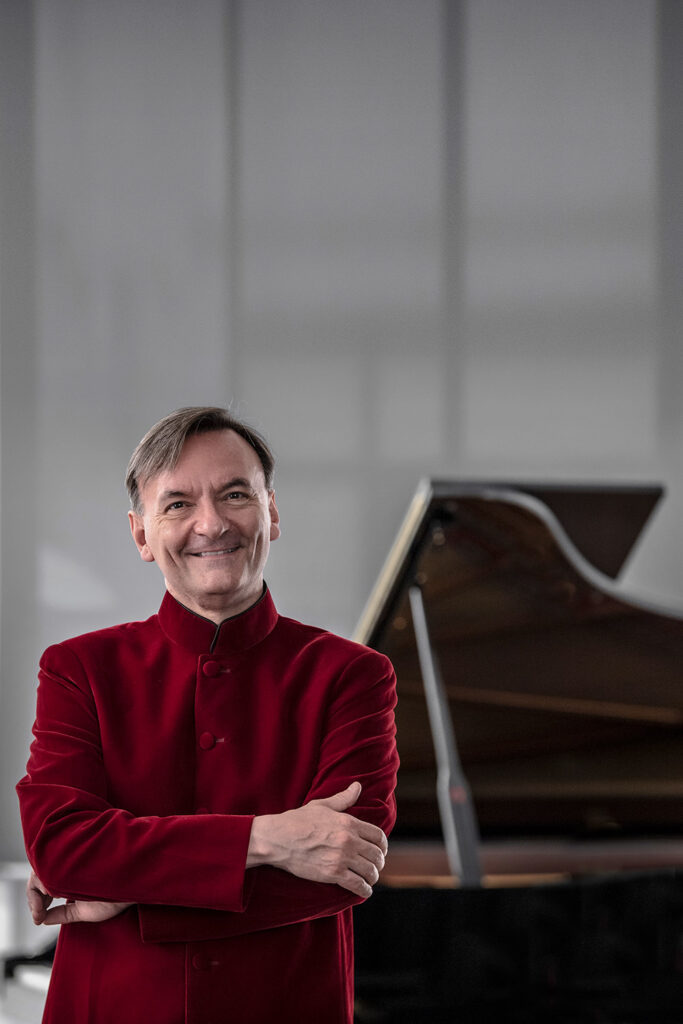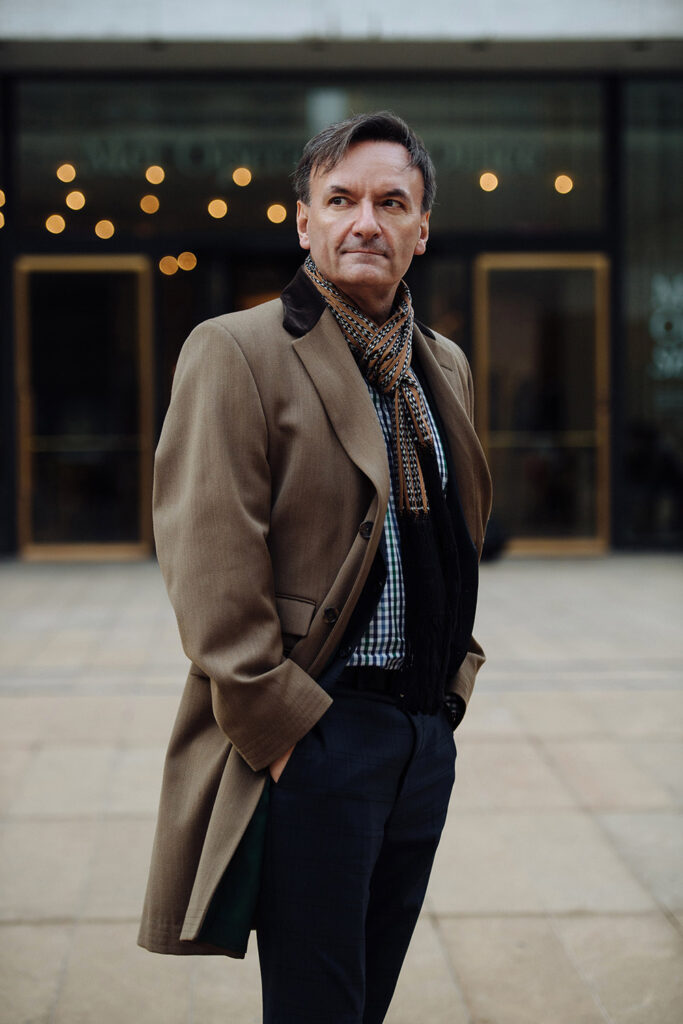Stephen Hough’s new concerto looks to the past as well as the future

Sir Stephen Hough’s response as to the inspiration for writing his Piano Concerto came as a surprise.
“It’s a long story, as I never thought that I would compose a piano concerto,” said the celebrated musician. “I just did not see the way into writing one and thought that my first would most likely be for the violin.”
That dynamic changed during the Covid-19 lockdown. During that period, Hough was approached to compose music for a film set in pre-World War II Vienna. The plot of the movie revolved around the composition of a keyboard concerto. Although the film project never materialized, Hough sensed that he had the beginnings of a piano concerto in the sketches he had made for the film score.
On Friday night, Hough will perform the world premiere of his concerto, titled “The World of Yesterday” with the Utah Symphony under the baton of Sir Donald Runnicles at Abravanel Hall.
The evolution from those early sketches to a full concerto was somewhat out of the norm for Hough, a part-time composer whose inspiration usually doesn’t strike him when sitting at a desk. Most of the time, he is jotting down ideas in a notebook while on the road, later crafting them into a composition when there is the time and space to work. Hough likened the process to “putting the ideas into a pressure cooker where they develop and mature.”
All that changed during the pandemic, as without the constant travel and rehearsing, Hough had more time to compose. It was a particularly fruitful period for him, as in addition to beginning work on “The World of Yesterday,”he completed his String Quartet No 1 “Les Six rencontres” for the Takács Quartet and Songs of Love and Loss, his most recent song cycle. “I work better with a hard deadline,” said Hough.
Even though the concerto was an offshoot of the aborted movie project, Hough stresses that it is not program music. The sketches he composed for the film, however, gave him the germ of a concerto. “I was really excited about that, and once I got my feet into the water with it, I realized that this was going to be a piece which I could play.”
One idea became the concerto’s opening theme composed in a style Hough describes as akin to that of Aaron Copland’s “big sky” music Another was transformed into its “Austrian” theme, which evokes the music of Erik Wolfgang Korngold, who was active during the era in which the movie was to have been set.
The film, however, is not the only source of the nostalgia which courses through Hough’s concerto. He was also inspired by Stefan Zweig’s Die Welt von Gestern, which gives the work its subtitle. Zweig’s 1942 memoir was written in Brazil and reflects upon the Central European cultural milieu in the waning years of the 19th century up to the early years of the war. Consumed with despair over the impact of the war upon the future of Europe and its culture, Zweig committed suicide, as did his wife, the day after completing Die Welt von Gestern.
Hough envisioned his concerto to be in the traditional form of the genre, likening it to Ravel’s Concerto for the Left Hand in D major, which is also cast in a single movement. “The World of Yesterday” is comprised of three sections: “Prelude & Cadenza,” “Waltz Variations,” and “Tarantella appassionata.”
The spirit of Brahms, a composer whom Hough describes as writing music that has “a heart as well as a head,” also infuses the work. He specifically cites Brahms’s skill with counterpoint and his tight structural approach, as well his ability to “turn themes upside down.”
Hough adds that the ties are more structural than stylistic. “The first two bars in which I lay out the entire piece is very much in keeping with the spirit of Brahms.”
Hough took a practical approach in composing the concerto, both in terms of audience appeal and the orchestral forces required to perform it. He wanted to compose music which was complex, yet accessible to an audience upon first hearing. The style he employed is essentially lyrical with the concerto ending with a flourish. In Hough’s view, this isn’t only what the audience expects, but also what it deserves.
This perspective extends to his writing for orchestra, with the forces required being about the same as those needed for a Tchaikovsky piano concerto. While the score has its complexities, they are underpinned by an intrinsic underlying simplicity. Although he admits to some particularly tricky passages for the woodwinds, as well as brilliant horn glissandos inspired by Richard Strauss’s opera Der Rosenkavalier.
As for the solo piano part, Hough did not envision it with only himself in mind. “Certainly virtuosity is required, but I employ figuration which makes the solo part easier to play than it sounds.” That too is a nod to tradition, as piano greats such as Franz Liszt and Anton Rubinstein regularly employed such tricks in their works.
“The World of Yesterday”was already in Hough’s mind as a project when he mentioned it to his management, who then floated the idea to the Utah Symphony. They were quick to respond and opted to co-commission the piece. Having worked previously with the orchestra, as well as with Runnicles, Hough believes that “the stars are aligned” for a successful launch of the concerto.
Hough’s aspirations for the future of his concerto are also a throwback to an earlier time, in that he hopes that it will become one of his calling cards in concert halls around the world. As he explains, it was once common for composers to write concertos which they themselves could preform on tour. It is a practice that pretty much died out with Béla Bartók in the mid-twentieth century, but which Hough hopes to revive.
The Salt Lake City performances will be followed by the concerto’s Canadian premiere in March with the Calgary Symphony, and in England in May with the Hallé Orchestra and Sir Mark Elder in both Manchester and Sheffield.
Without even hearing it, or waiting for the premiere reviews, a number of other orchestras have already programmed the work. Hough might just have found yet another calling card—as if he really needed one.
Stephen Hough gives the world premiere of his Piano Concerto, “The World of Yesterday” with Donald Runnicles and the Utah Symphony 7:30 p.m. Friday and Saturday at Abravanel Hall. The program also includes Elgar’s Cockaigne and Vaughan Williams’ Symphony No. 5. utahsymphony.org
Rick Perdian was a music major who went on to an international career in law and insurance. Now a writer, he contributes regularly to New York Classical Review, Classical Voice North America, and Seen and Heard International, as well as occasionally leading music-themed tours to far-off places.
